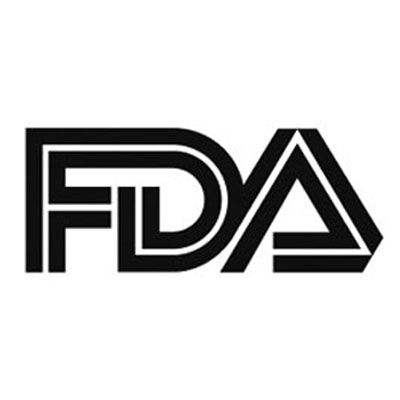FDA Updates Prescribing Label for Ibrutinib for Waldenström Macroglobulinemia Indication
The FDA updated the prescribing label for the approval of ibrutinib to include efficacy and safety data as combination therapy with rituximab as treatment of patients with Waldenström’s macroglobulinemia.

The FDA has updated the prescribing label for ibrutinib (Imbruvica) to include efficacy and safety data as combination therapy with rituximab (Rituxan) as treatment of patients with Waldenström macroglobulinemia, AbbVie announced in a press release.1
This update is based on findings from the final analysis of the phase 3 iNNOVATE clinical trial (NCT), which demonstrated the combination of ibrutinib plus rituximab significantly prolonged progression-free survival (PFS) compared with rituximab alone in adult patients with Waldenström macroglobulinemia.
"The long-term results from the phase 3 iNNOVATE study provide clinicians even more evidence that patients with Waldenström’s macroglobulinemia can benefit from treatment with an ibrutinib-based regimen and maintain prolonged progression-free survival,” principal investigator Meletios A. Dimopoulos, MD, who is professor and chairman of the Department of Clinical Therapeutics, National and Kapodistrian University of Athens School of Medicine, Athens, Greece, said in a statement.
The prescribing information now includes the results from the final analysis of iNNOVATE with an overall follow-up of 63 months. The additional follow-up demonstrated that the combination of ibrutinib plus rituximab induced a prolonged PFS compared with rituximab monotherapy.
The updated findings from the iNNOVATE study, which were presented during the 2020 American Society of Hematology (ASH) Annual Meeting, demonstrated a 75% reduction in the risk of disease progression or death (HR, 0.25; 95% CI, 0.15-0.42; P <.0001).2
The most common adverse events, occurring in 20% or more of patients, included bruising, muscle pain, bleeding problems, diarrhea, rash, joint pain, nausea, and high blood pressure with the combination regimen.
Ibrutinib, the first-generation Bruton’s tyrosine kinase (BTK) inhibitor, was the first FDA-approved therapy for these patients and remains the only approved treatment for adults with Waldenström’s macroglobulinemia. Ibrutinib received its indication from the FDA as a monotherapy in 2015 for the treatment of Waldenström macroglobulinemia and later received approval for combination use with rituximab for this setting in 2018.
"We're encouraged by this latest recognition from the FDA as it underscores our commitment to supporting those impacted by Waldenström’s macroglobulinemia, a rare and incurable form of non-Hodgkin's lymphoma," Danelle James, MD, MAS, ibrutinib global development lead, Pharmacyclics LLC, an AbbVie company, stated in a press release. "Ibrutinib is the only FDA-approved treatment for these patients and now includes more than 5 years of safety and efficacy data to help provide better understanding of how to treat this rare blood cancer."
Ibrutinib, first approved in 2013, is available to treat several types of blood cancers, as well as graft-versus-host disease.
References
1. IMBRUVICA® (ibrutinib) U.S. Prescribing Information Updated to Include Long-Term Data for Waldenström's Macroglobulinemia (WM). News Release. AbbVie. December 23, 2020. Accessed December 23, 2020. https://yhoo.it/3mK0Cbm
2. Trotman J, Buske C, Tedeschi A, Matous JV, et al. Long-Term Follow-up of Ibrutinib Treatment for Rituximab-Refractory Waldenström’s Macroglobulinemia: Final Analysis of the Open-Label Substudy of the Phase 3 iNNOVATE Trial. Presented at: 2020 ASH Annual Meeting; December 5-8, 2020; Virtual. Abstract 2937.